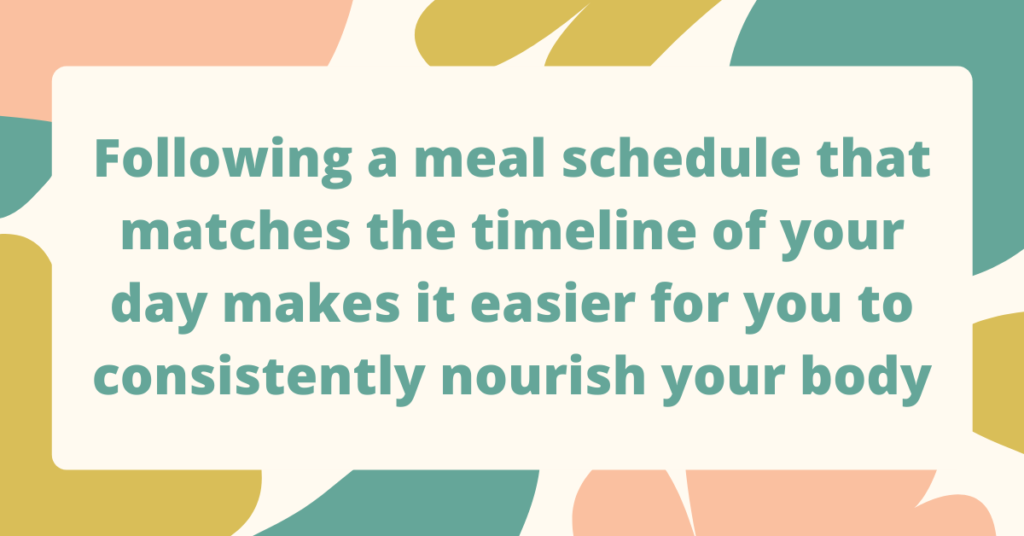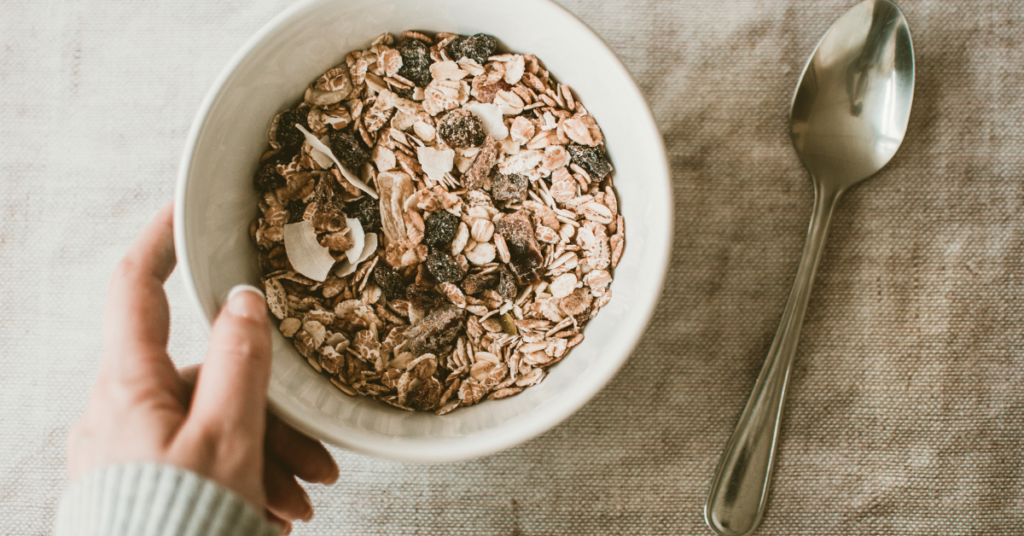Back to School Tips: Managing ED Recovery Meals and Snacks
December 16, 2021
It’s a new school year and that means you’re likely adjusting to a new schedule with more time in the classroom, loaded homework assignments, extracurricular activities, clubs, sports, seeing friends you’ve missed over summer, and meeting new people.
Preparing for the school year can be challenging as you transition from summer mode into school mode, especially with meals and snacks since you’ll be spending most of your day out of the house.
While you’re at school, you’re more independent and the triggers seem to pop up out of nowhere being in a new environment.
Stress and anxiety can surface as you try to follow your meal plan, stick to recovery, and keep up with your daily tasks while also dealing with social pressures.
Everyone goes through setbacks and learning curves. Even with the new challenges you’re facing this school year, you can STILL stay the course of your recovery!
You CAN set yourself up to successfully manage your ED recovery meals and snacks throughout the school year.

Back to School Tips: Managing ED Recovery Meals and Snacks
Use the Structured Schedule to Your Advantage
During the summer you enjoyed the extra free time, but the nice part of getting back into the swing of things for the school year is that you can establish more structure that will aid in your recovery.
Following a meal schedule that matches the timeline of your day makes it easier for you to consistently nourish your body. Predictable meal timing helps show your body that it can trust you to feed it well.
With 3 meals and 2-3 snacks, your day can line up with your school schedule perfectly. For example:
- Breakfast at home before heading out to school.
- Morning snack in between classes.
- Lunch in the cafeteria.
- Snack after school, before your sports practice or extracurriculars.
- Dinner with your family or friends.
- Evening snack before bed.
Work with your current school schedule to line up your meals and snacks with it. Of course, you might have to be flexible here and there if changes come up, but the school year is a great time to rely on a structured schedule to your advantage.

Make Your Meals Simple, but Adequate
The key is to plan your meals with as little stress as possible, so packing your meals for a busy school day always feels doable.
During the summer you have your entire kitchen and pantry handy. Unlike summer you now have more limitations on what you can pack to take along with you for lunch and snacks.
Invest in a nice lunch bag that easily helps you pack and carry food. Make sure you have everything you need like tupperware, sandwich bags, travel utensils, and ice packs.
Your meals and snacks should be substantial enough to carry you throughout your school day, but also accommodating to your circumstances. Keep in mind you might not be able to refrigerate, microwave, or have the ability to assemble a more complicated meal.
Here are some examples of a simple 3 part model for lunches, which includes: an entree (main item), 1-2 side items, and a fruit or vegetable.
- Peanut butter and jelly sandwich, yogurt, potato chips, and an apple.
- Entree-style salad with toppings like meat, cheese, nuts, and dressing paired with crackers, a cookie, and a lemonade.
- Leftover pizza, trail mix, and a fruit salad.
The options are endless, you just might have to get creative!
Eat Breakfast
You may have been sleeping in over the summer, but now you have to wake up early. Instead of getting up at the last minute to speed out the door, give yourself plenty of time to prepare and eat breakfast.
Set an alarm so that you can calmly eat breakfast and digest comfortably rather than being rushed and struggling to have time to eat.
It can be helpful to prepare the night before with quick items you can grab and enjoy such as:
- Bowl of cereal and fruit
- Yogurt and granola
- Bagel with cream cheese or nut butter
- Smoothie with fruit, fats, and grains
These breakfast ideas are all simple to prepare and eat.
Also, make sure to keep up with weekly grocery shopping or at least having a list on the refrigerator for your parents to have the essentials available.

Remember Your Snack Breaks
Snacks are super helpful to keep your body humming along so that you don’t get ravenous when it’s time for your next meal. It’s normal to be hungry for lunch and dinner, but try to avoid excessive hunger.
Eating snacks is appropriate and nourishing. Have some backup snacks in addition to the planned ones in your school bag for anytime that hunger strikes or if you’re stuck longer than anticipated without a meal. Apples with peanut butter, crackers with a cheese stick, or granola bars are all easy to stash away.
Keep Your Brain Fueled
It’s easy to let the eating disorder voice in your head tell you that you don’t need to eat as much food because you’re “less active” during the day now that you’re sitting in class for long periods.
Even IF you’re sitting more, your mind is very active at school and your brain still relies on receiving enough energy to study, retain information, and stay afloat with a robust academic load.
Did you know that your brain uses about 20% of your body’s energy?! That’s why eating enough is crucial for brain performance!
It’s common to worry that a huge calorie shift takes place transitioning from summer to school, but it’s not as significant as you may think it is. Your body needs nourishment even if you’re sitting at a desk all day!

Avoid Comparison
Now that you’ll be eating daily amongst friends and classmates, do your best to not compare what’s on your plate to what’s on their plates.
Remind yourself that everyone has different needs, and what they’re eating in front of you is only a snapshot of what they eat in an entire day. It’s OK if what you packed for lunch is more than what someone else packed.
If eating in public is tough, reach out to a close friend that you trust for them to support you and hold you accountable. Do what you can to make your eating experience comfortable, but also challenge yourself to eat around others, especially around people you know have a healthy relationship with food.
It’s entirely possible to prioritize recovery while still being a student! You just need to find what works for you!
Reach Out to an Eating Disorder Dietitian for Support with Back to School Tips
Being in consistent contact with your treatment team and having a reliable network of people that are there for you is SO beneficial to your recovery.
The dietitians at Nutrition Counseling Center are here to walk with you throughout this school year! Message us to reach out and get started!
Leave a Reply Cancel reply
designed by morgan sinclair designs
privacy policy
//
meet the team
Nutrition counseling
contact
Blog
Monthly Newsletter
Sign up for our
office locations
Phone number
248-686-0340
fax number
248-655-7478
43334 W. 7 Mile Road, Suite 300, Northville, MI 48167
book initial session
8949 Dixie Hwy
Clarkston, MI 48348